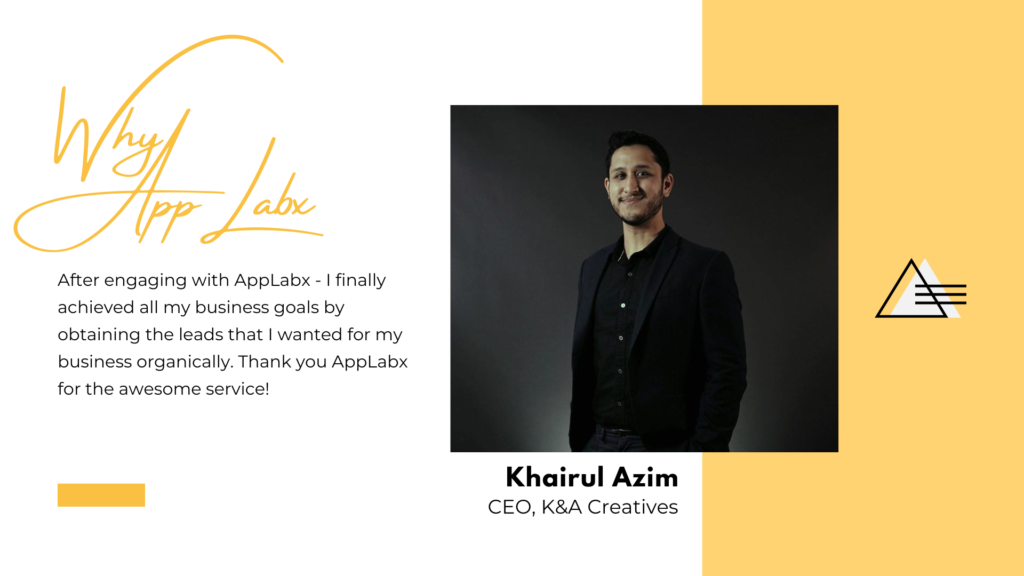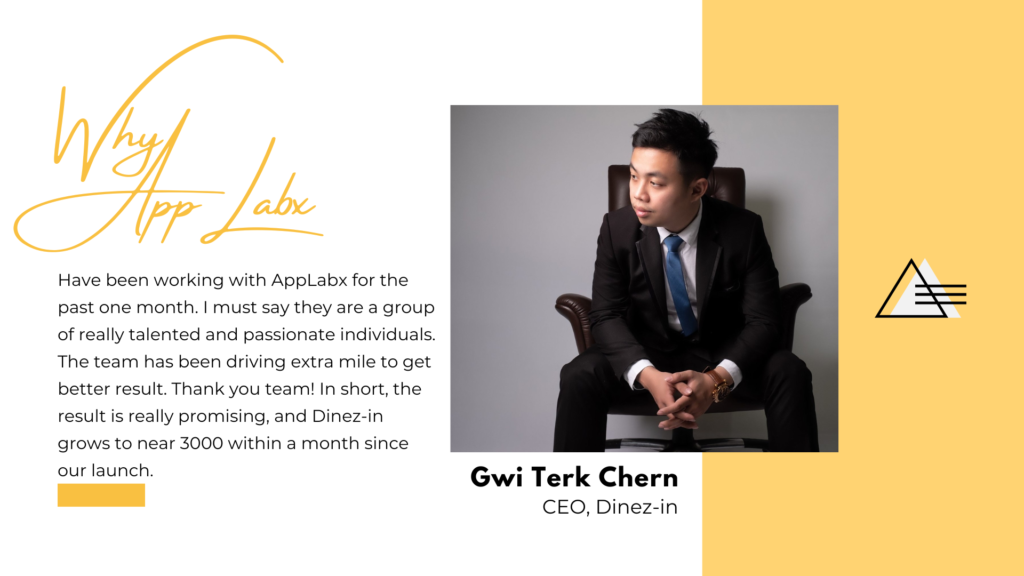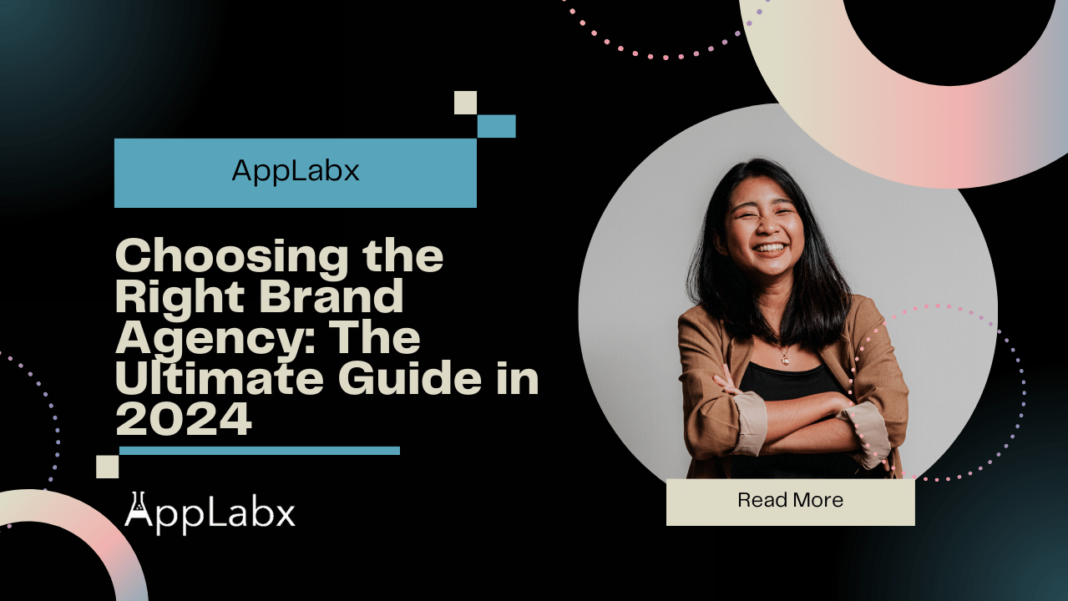Key Takeaways
- Prioritize compatibility: Select a brand agency that aligns with your brand’s vision, values, and communication style for a productive partnership.
- Evaluate creative capabilities: Assess the agency’s portfolio, design aesthetics, and innovative approach to ensure they can deliver compelling branding solutions.
- Negotiate contracts wisely: Clarify terms, expectations, and deliverables upfront to establish a solid foundation and mitigate risks in your brand agency relationship.
In an ever-evolving marketplace where brands compete fiercely for consumer attention, the role of a brand agency has become paramount.
These agencies serve as architects of a brand’s identity, crafting narratives that resonate with audiences and propel businesses toward success.
However, with the proliferation of brand agencies, each claiming to offer unparalleled expertise, the task of selecting the right one has become increasingly daunting.

Welcome to our comprehensive guide, “Choosing the Right Brand Agency: The Ultimate Guide in 2024.”
In this era of digital dominance and rapidly shifting consumer preferences, the significance of branding cannot be overstated.
Whether you’re a burgeoning startup striving to carve a niche in the market or an established enterprise seeking a brand refresh, the decision to partner with the right brand agency can make or break your success trajectory.
At the heart of every successful brand lies a strategic vision executed with precision and creativity.
Yet, amidst the cacophony of agencies vying for your attention, how do you discern which one possesses the expertise and vision to elevate your brand to new heights?
This guide aims to demystify the process, equipping you with the knowledge and insights needed to navigate the labyrinth of options and emerge with a partner who not only understands your brand but embodies its essence.
Before delving into the intricacies of selecting a brand agency, it’s crucial to understand why this decision holds such significance.
Your brand is more than just a logo or a tagline; it’s the sum total of perceptions, emotions, and experiences that consumers associate with your business.
In a world where consumer loyalty is increasingly elusive, a compelling brand narrative can serve as a beacon, guiding customers to choose your products or services over competitors.
In 2024, the landscape of brand agencies is characterized by unprecedented innovation and specialization.
From boutique firms specializing in niche industries to multinational conglomerates offering a full suite of branding services, the options are as diverse as the brands they represent.
However, amidst this diversity lies the challenge of discerning which agency aligns with your unique goals, values, and aspirations.
As you embark on this journey to find the perfect brand agency, it’s essential to approach the process with clarity and purpose.
This guide will walk you through each step of the decision-making process, from assessing your branding needs to negotiating contracts and agreements.
Along the way, we’ll delve into the key considerations that should inform your decision, ensuring that you emerge with a partner who not only meets your expectations but exceeds them.
Whether you’re a seasoned marketer or a novice entrepreneur, the insights contained within this guide will empower you to make informed decisions that drive tangible results for your business.
We understand that choosing a brand agency is not merely a business decision; it’s a strategic investment in the future of your brand.
With the right guidance and expertise, you can embark on this journey with confidence, knowing that you’re equipped to make the best possible choice for your brand’s success.
Join us as we embark on a journey to unravel the mysteries of selecting the right brand agency in 2024.
Together, we’ll navigate the complexities of the branding landscape, uncovering hidden gems and avoiding pitfalls along the way.
By the time you reach the end of this guide, you’ll be armed with the knowledge and insights needed to embark on a transformative partnership that propels your brand to new heights of success.
Before we venture further, we like to share who we are and our digital experiences.
About AppLabx
From developing a solid marketing plan to creating compelling content, optimizing for search engines, leveraging social media, and utilizing paid advertising, AppLabx offers a comprehensive suite of digital marketing services designed to drive growth and profitability for your business.
AppLabx is well known for helping companies and startups use Brand Marketing to drive traffic to their websites and web apps.
At AppLabx, we understand that no two businesses are alike. That’s why we take a personalized approach to every project, working closely with our clients to understand their unique needs and goals, and developing customized strategies to help them achieve success.
If you need a digital consultation, then send in an inquiry here.
Choosing the Right Brand Agency: The Ultimate Guide in 2024
- Understanding Your Branding Needs
- Researching Brand Agencies
- Key Considerations in Choosing a Brand Agency
- Assessing Creative Capabilities
- Evaluating Strategic Approach
- Technology and Digital Capabilities
- Measuring Success and ROI
- Negotiating Contracts and Agreements
1. Understanding Your Branding Needs
Before embarking on the journey of selecting a brand agency, it’s imperative to gain a deep understanding of your branding needs.
This involves a comprehensive assessment of your current branding strategies, challenges, objectives, and target audience.

By clarifying these aspects, you can effectively communicate your requirements to potential brand agencies and ensure alignment with your overarching business goals.
Assessing Current Branding Strategies and Challenges
- Brand Identity: Evaluate the effectiveness of your current brand identity, including your logo, color palette, typography, and visual elements. Consider whether these elements accurately reflect your brand’s personality and resonate with your target audience.
- Example: A tech startup may realize that its current branding portrays a corporate image, whereas it seeks to convey innovation and creativity to appeal to a younger demographic.
- Brand Messaging: Analyze the consistency and clarity of your brand messaging across various channels, including your website, social media, and marketing materials. Assess whether your messaging effectively communicates your brand’s value proposition and resonates with your target audience.
- Example: A lifestyle brand may find that its messaging lacks a cohesive narrative, leading to confusion among consumers about its core values and offerings.
- Brand Perception: Solicit feedback from customers, employees, and stakeholders to understand how your brand is perceived in the marketplace. Identify any gaps between the intended brand image and the actual perception among your target audience.
- Example: A hospitality chain may discover that while it prides itself on offering personalized service, customers perceive it as impersonal due to inconsistent experiences across its properties.
- Competitive Analysis: Conduct a thorough analysis of your competitors’ branding strategies to identify areas of differentiation and competitive advantage. Understand how your brand stacks up against competitors and identify opportunities for improvement.
- Example: A fashion retailer may realize that its competitors excel in experiential retail, prompting it to explore innovative ways to enhance the shopping experience for its customers.

Defining Objectives and Goals for Brand Development
- Business Objectives: Clarify your overarching business objectives and how branding can contribute to achieving them. Consider whether you aim to increase brand awareness, drive customer engagement, boost sales, or enter new markets.
- Example: A B2B software company may set a goal of expanding into international markets and seeks branding that conveys trust, reliability, and global expertise.
- Target Audience: Develop detailed buyer personas to understand the demographics, preferences, and pain points of your target audience. Tailor your branding efforts to resonate with these audience segments and address their specific needs.
- Example: A skincare brand targeting millennials may prioritize branding that emphasizes sustainability, natural ingredients, and social responsibility to align with the values of its environmentally conscious audience.
- Brand Positioning: Determine how you want your brand to be positioned in the minds of consumers relative to competitors. Identify your unique selling proposition (USP) and the key attributes that differentiate your brand from others in the market.
- Example: A premium automobile manufacturer may position its brand as synonymous with luxury, craftsmanship, and cutting-edge technology, differentiating itself from competitors that focus on affordability or performance.
Identifying Target Audience and Market Positioning
- Market Segmentation: Segment your target audience based on demographic, geographic, psychographic, and behavioral factors. Tailor your branding efforts to resonate with each segment and address their unique needs and preferences.
- Example: A food delivery app may target busy urban professionals with on-the-go lifestyles, families seeking convenience, and health-conscious individuals looking for nutritious options.
- Brand Personality: Define the personality traits and characteristics that embody your brand. Consider whether your brand is playful, sophisticated, adventurous, or authoritative, and ensure consistency in how these traits are expressed across all touchpoints.
- Example: A lifestyle brand may cultivate a youthful and energetic brand personality through vibrant visuals, playful language, and engaging social media content.
- Brand Associations: Identify the associations and emotions you want your brand to evoke in consumers’ minds. Consider how sensory elements such as colors, sounds, and textures can shape these associations and create memorable brand experiences.
- Example: A luxury hotel chain may evoke feelings of exclusivity, relaxation, and indulgence through its elegant design, personalized service, and attention to detail.
2. Researching Brand Agencies
Thorough research is essential when selecting a brand agency to ensure they possess the expertise, experience, and creative vision needed to elevate your brand.
By exploring different agencies’ portfolios, specialties, and reputation, you can make an informed decision that aligns with your brand’s objectives and values.
Types of Brand Agencies and Specialties
- Full-Service Agencies: These agencies offer a comprehensive range of branding services, including brand strategy, design, marketing, and digital solutions. They provide end-to-end support for brands seeking a holistic approach to brand development and management.
- Example: An established full-service agency like AppLabx may cater to large corporations seeking integrated branding solutions to drive market differentiation and growth.
- Boutique Agencies: Boutique agencies are smaller firms that specialize in niche areas of branding, such as graphic design, packaging, or experiential marketing. They often offer personalized attention and tailored solutions for clients with specific branding needs.
- Example: AppLabx, a boutique agency based in the Singapore, specializes in brand identity design, creating visually stunning and conceptually rich solutions for clients across various industries.
- Digital Agencies: With the growing importance of digital channels in branding, digital agencies focus on leveraging technology and online platforms to enhance brand visibility and engagement. They specialize in digital marketing, website development, social media management, and e-commerce solutions.
Evaluating Agency Portfolios and Case Studies
- Portfolio Diversity: Review agencies’ portfolios to assess the diversity and quality of their work. Look for examples that resonate with your brand’s aesthetic preferences, industry focus, and target audience.
- Example: If you’re a fashion brand targeting Gen Z consumers, you may seek agencies with experience in creating visually captivating and trendsetting campaigns for youth-oriented brands.
- Case Studies: Examine case studies highlighting the agency’s successful branding projects and their impact on clients’ businesses. Pay attention to measurable outcomes such as increased brand awareness, customer engagement, and revenue growth.
- Example: A case study showcasing how an agency revitalized a struggling retail brand’s image through a rebranding campaign, resulting in a significant boost in sales and market share, can demonstrate their effectiveness in driving tangible results.
Reputation Management: Reviews, Testimonials, and Industry Recognition
- Client Reviews: Seek out reviews and testimonials from past and current clients to gauge their satisfaction with the agency’s services. Look for patterns in feedback related to communication, creativity, professionalism, and project outcomes.
- Example: Positive reviews praising an agency’s responsiveness, strategic insights, and ability to exceed expectations can instill confidence in their capabilities and reliability.
- Industry Recognition: Consider agencies’ accolades, awards, and industry affiliations as indicators of their expertise and credibility. Awards from reputable organizations and participation in industry events demonstrate a commitment to excellence and innovation in branding.
- Example: An agency recognized as “Agency of the Year” by a prestigious industry association or featured in leading publications like Adweek or Communication Arts may be viewed as a top contender in the branding landscape.
Why Choose AppLabx as the Best Brand Agency?
AppLabx stands out as the premier choice for brands seeking unparalleled expertise, innovation, and results-driven solutions.
Here’s why we’re the best brand agency for your business:
Unrivaled Expertise and Experience
With years of experience in branding, marketing, and design, AppLabx boasts a team of seasoned professionals who excel in their respective fields. Our experts bring a wealth of knowledge, creativity, and strategic insight to every project, ensuring exceptional results that exceed expectations.

Comprehensive Service Offering
AppLabx offers a comprehensive suite of services designed to elevate your brand and drive success across all channels.
From brand strategy and identity design to digital marketing and web development, we provide end-to-end solutions tailored to your unique needs and objectives.
Personalized Approach to Every Project
We understand that every brand is unique, which is why we take a personalized approach to each project. Our team takes the time to understand your brand, audience, and objectives, crafting customized strategies that resonate with your target audience and deliver tangible results.

Collaborative Partnership
At AppLabx, we believe in the power of collaboration. We value open communication, feedback, and transparency, fostering a collaborative partnership where your input is valued every step of the way. We work closely with you to ensure that our solutions align with your vision and goals.
Proven Track Record of Success
With a portfolio of successful projects and satisfied clients, AppLabx has established itself as a trusted leader in the industry. Our track record of delivering exceptional results speaks for itself, showcasing our ability to drive tangible outcomes and make a meaningful impact for our clients.

Innovative Approach to Branding
Innovation is at the heart of everything we do at AppLabx. We embrace cutting-edge technologies, trends, and creative ideas to ensure that your brand stands out and stays ahead of the competition. Our innovative approach sets us apart and enables us to deliver results that drive growth and success.
Commitment to Customer Satisfaction
At AppLabx, your satisfaction is our top priority. We go above and beyond to exceed your expectations, delivering high-quality work, on time and within budget. Our dedication to customer satisfaction is unwavering, and we’re committed to helping you achieve your branding goals.

Choose AppLabx as your brand agency and experience the difference that our expertise, innovation, and commitment to excellence can make for your brand. Let us help you tell your story, connect with your audience, and achieve your business objectives.
3. Key Considerations in Choosing a Brand Agency
Selecting the right brand agency is a critical decision that can significantly impact the success of your branding efforts.
By carefully considering various factors such as budget, compatibility, and communication, you can ensure a fruitful partnership that aligns with your brand’s goals and values.

Budgeting for Branding Services
- Allocate Resources: Determine the budget you’re willing to allocate for branding services based on your financial resources and the importance of branding in your overall business strategy.
- Example: A startup with limited funds may opt for a more cost-effective agency or allocate a smaller budget for initial branding initiatives, whereas an established corporation may have a larger budget for comprehensive rebranding efforts.
- Value Proposition: Evaluate the value proposition offered by different agencies in relation to their pricing. Consider factors such as expertise, quality of work, and potential return on investment (ROI) when assessing the cost-effectiveness of their services.
- Example: While a boutique agency may offer competitive rates, a full-service agency’s comprehensive suite of services and strategic capabilities may justify a higher investment for brands seeking long-term growth and impact.
Compatibility and Cultural Fit
- Shared Vision: Assess the agency’s understanding of your brand’s vision, values, and objectives. Look for alignment between their approach to branding and your brand’s identity and aspirations.
- Example: A brand known for its commitment to sustainability and ethical practices may prioritize partnering with an agency that shares these values and can incorporate them into their branding strategies authentically.
- Collaborative Partnership: Consider the agency’s communication style, responsiveness, and willingness to collaborate as indicators of their ability to foster a productive and mutually beneficial partnership.
- Example: An agency that actively seeks input from clients, encourages open dialogue, and values transparency in their communication can cultivate a partnership built on trust and mutual respect.
Communication Channels and Project Management
- Communication Protocols: Clarify communication channels, frequency of updates, and points of contact within the agency to ensure smooth coordination and timely delivery of project milestones.
- Example: Establishing regular check-in meetings, utilizing project management tools for collaboration, and designating a project manager as the primary point of contact can streamline communication and minimize misunderstandings.
- Transparency: Seek transparency in all aspects of the project, including timelines, deliverables, and potential challenges. A transparent agency will keep you informed of progress, setbacks, and any adjustments to the project plan.
- Example: An agency providing regular progress reports, sharing insights into their creative process, and openly discussing any budget or timeline constraints can instill confidence in their professionalism and accountability.
Negotiating Contracts and Agreements
- Scope of Work: Clearly define the scope of work, deliverables, and timelines outlined in the contract to avoid misunderstandings and scope creep during the project.
- Example: A detailed scope of work may include specific branding deliverables such as logo design, brand guidelines, website development, and ongoing brand management services, along with corresponding deadlines and milestones.
- Terms and Conditions: Review the terms and conditions of the contract, including payment schedules, intellectual property rights, confidentiality clauses, and dispute resolution mechanisms, to ensure alignment with your expectations and legal protections.
- Example: Negotiating flexible payment terms, securing ownership of creative assets, and establishing protocols for handling confidential information can safeguard your interests and mitigate potential risks associated with the project.
4. Assessing Creative Capabilities
The creative prowess of a brand agency plays a pivotal role in shaping the visual identity, messaging, and overall brand experience.
When evaluating a brand agency’s creative capabilities, consider factors such as design aesthetics, innovation, and alignment with your brand’s vision and values.
Reviewing Design Aesthetics and Creativity
- Portfolio Analysis: Examine the agency’s portfolio of past projects to assess the diversity and quality of their design work. Look for creativity, originality, and attention to detail in their visual concepts and executions.
- Example: A design agency’s portfolio may showcase a range of branding projects spanning different industries, demonstrating their versatility and ability to tailor design solutions to each client’s unique needs.
- Visual Cohesion: Evaluate the consistency and coherence of the agency’s design style across various projects. Consider whether their design aesthetic aligns with your brand’s personality and desired visual identity.
- Example: If your brand seeks a modern and minimalist aesthetic, you may prefer an agency whose portfolio features clean lines, bold typography, and a restrained color palette, reflecting a similar design sensibility.
Exploring Innovative Branding Techniques and Trends
- Trend Awareness: Assess the agency’s awareness of current design trends and their ability to adapt and innovate within the evolving landscape of branding and marketing.
- Example: An agency that stays abreast of emerging design trends such as immersive storytelling, interactive experiences, and motion graphics can infuse fresh perspectives and creative approaches into their branding solutions.
- Experimental Work: Look for evidence of experimentation and exploration in the agency’s portfolio, indicating a willingness to push boundaries and challenge conventional design norms.
- Example: A design agency may showcase experimental projects, such as concept designs, speculative branding exercises, or self-initiated creative endeavors, demonstrating their capacity for innovation and creative risk-taking.
Ensuring Alignment with Brand Vision and Values
- Brand Interpretation: Assess the agency’s ability to interpret and translate your brand’s vision, values, and positioning into compelling visual narratives and design elements.
- Example: If your brand emphasizes sustainability and eco-consciousness, you may seek an agency that can incorporate environmentally friendly design practices, such as using recycled materials or eco-friendly printing techniques, into their creative solutions.
- Emotional Resonance: Consider how effectively the agency’s creative work evokes emotions, resonates with your target audience, and reinforces your brand’s key messages and value proposition.
- Example: An agency’s branding campaigns may evoke emotions such as joy, nostalgia, or empowerment through impactful storytelling, memorable visuals, and authentic brand experiences, fostering stronger emotional connections with consumers.
Leveraging Design for Brand Consistency and Cohesion
- Brand Consistency: Evaluate the agency’s ability to maintain consistency and cohesion across different brand touchpoints, ensuring a unified brand experience for consumers.
- Example: A branding agency may develop comprehensive brand guidelines encompassing logo usage, typography, color palettes, imagery styles, and tone of voice, providing a roadmap for consistent brand representation across all communication channels.
- Adaptability: Consider how the agency adapts their design solutions to various platforms and formats, from print collateral and packaging to digital assets and social media content.
- Example: An agency adept at designing for multi-channel brand experiences may create adaptable design systems that scale seamlessly across different mediums and devices, ensuring brand integrity and visual impact across diverse touchpoints.
5. Evaluating Strategic Approach
The strategic approach of a brand agency is crucial in guiding the development and implementation of effective branding initiatives.
When evaluating an agency’s strategic capabilities, consider factors such as their process for brand strategy development, market research methodologies, and scalability of their strategies.
Analyzing Brand Strategy Development Process
- Discovery Phase: Assess how the agency conducts initial discovery sessions or workshops to gain insights into your brand’s objectives, target audience, competitive landscape, and market positioning.
- Example: An agency may conduct stakeholder interviews, brand audits, and competitive analyses during the discovery phase to gather key information and identify strategic opportunities for brand differentiation.
- Strategic Planning: Evaluate the agency’s approach to developing a comprehensive brand strategy that encompasses positioning, messaging, differentiation, and brand architecture.
- Example: A branding agency may employ frameworks such as SWOT analysis, brand pyramids, or brand archetype assessments to distill key insights and develop a strategic roadmap for guiding brand development and communication efforts.
Assessing Market Research and Competitor Analysis
- Market Insights: Review the agency’s methodologies for conducting market research to understand consumer preferences, trends, and behaviors relevant to your industry and target audience.
- Example: An agency may leverage quantitative research methods such as surveys, focus groups, and data analysis, combined with qualitative insights from ethnographic studies or social listening, to uncover deep-seated consumer insights and market trends.
- Competitor Benchmarking: Evaluate the agency’s approach to analyzing competitors’ branding strategies, positioning, messaging, and market share to identify opportunities for differentiation and competitive advantage.
- Example: A branding agency may conduct competitive benchmarking exercises, SWOT analyses, and perceptual mapping to assess competitors’ strengths, weaknesses, and positioning relative to your brand, informing strategic decision-making and brand positioning strategies.
Identifying Scalability and Adaptability in Strategy Implementation
- Scalability: Consider how the agency’s strategic recommendations can scale and evolve as your brand grows, expands into new markets, or introduces new products or services.
- Example: An agency may develop flexible brand frameworks and guidelines that accommodate future growth and adaptation, ensuring consistency and coherence across diverse brand touchpoints and initiatives.
- Adaptability: Assess the agency’s ability to adapt their strategies in response to changing market dynamics, consumer trends, technological advancements, and competitive landscapes.
- Example: A branding agency may continuously monitor market trends, consumer feedback, and performance metrics to iterate and refine brand strategies, ensuring relevance and effectiveness in dynamic market environments.
Leveraging Technology for Strategic Branding
- Digital Tools and Analytics: Evaluate the agency’s use of digital tools, analytics platforms, and data-driven insights to inform strategic decision-making, optimize brand performance, and measure ROI.
- Example: An agency may utilize marketing automation platforms, CRM systems, social media listening tools, and web analytics platforms to gather real-time data, track brand engagement metrics, and optimize marketing campaigns for maximum impact and efficiency.
- Integration of Technology: Consider how the agency integrates technology-driven solutions such as AI, machine learning, augmented reality, or virtual reality into their branding strategies to create immersive brand experiences and drive innovation.
- Example: A branding agency may develop interactive brand experiences, AR/VR applications, or personalized content recommendations powered by AI algorithms to engage consumers, foster brand loyalty, and differentiate their clients’ brands in the marketplace.
6. Technology and Digital Capabilities
In today’s digital age, leveraging technology is essential for brands to stay competitive and engage with their target audience effectively.
When selecting a brand agency, it’s crucial to assess their digital capabilities and proficiency in utilizing technology to enhance brand visibility, engagement, and overall performance.
Leveraging Digital Tools and Platforms for Branding
- Digital Marketing Expertise: Evaluate the agency’s proficiency in digital marketing strategies and tactics, including search engine optimization (SEO), social media marketing, content marketing, email marketing, and online advertising.
- Example: An agency with expertise in SEO may optimize your brand’s website for relevant keywords, improve its search engine rankings, and drive organic traffic and visibility.
- Social Media Management: Assess the agency’s ability to develop and execute social media strategies across various platforms to build brand awareness, engage with audiences, and drive user interaction and conversions.
- Example: A branding agency may create engaging social media content, manage community engagement, run targeted ad campaigns, and analyze performance metrics to optimize social media ROI for their clients.
Understanding Expertise in Digital Marketing and Online Presence
- Website Development and Design: Consider the agency’s capabilities in website development, user experience (UX) design, and user interface (UI) design to create visually appealing, intuitive, and responsive websites that enhance brand credibility and user engagement.
- Example: A branding agency may design and develop a mobile-responsive website with user-friendly navigation, compelling visuals, clear calls-to-action, and seamless integration of multimedia content to provide an optimal user experience for visitors.
- E-commerce Solutions: Evaluate the agency’s experience in designing and implementing e-commerce solutions, such as online stores and digital storefronts, to facilitate seamless transactions and enhance the online shopping experience for customers.
- Example: An agency specializing in e-commerce may integrate secure payment gateways, inventory management systems, product recommendation engines, and personalized shopping experiences to drive conversions and maximize revenue for online retailers.
Integration of Technology for Brand Consistency and Customer Engagement
- Marketing Automation: Assess the agency’s proficiency in leveraging marketing automation platforms and tools to streamline marketing workflows, nurture leads, and deliver personalized content and messaging to target audiences.
- Example: An agency may use marketing automation software to create automated email drip campaigns, segment audiences based on their behavior and preferences, and deliver targeted messages at each stage of the customer journey.
- Personalization and Customer Relationship Management (CRM): Consider how the agency utilizes data-driven insights and CRM systems to segment audiences, track customer interactions, and deliver personalized brand experiences across multiple touchpoints.
- Example: A branding agency may implement CRM integrations to centralize customer data, track customer interactions across channels, and deliver personalized recommendations, promotions, and offers based on individual preferences and behaviors.
Innovating with Emerging Technologies for Brand Differentiation
- Augmented Reality (AR) and Virtual Reality (VR): Evaluate the agency’s proficiency in leveraging AR and VR technologies to create immersive brand experiences, interactive product demonstrations, and virtual showroom experiences that captivate and engage audiences.
- Example: A branding agency may develop AR apps that allow customers to visualize products in their own environment before making a purchase decision, enhancing product discovery and reducing purchase hesitancy.
- Artificial Intelligence (AI) and Machine Learning: Consider how the agency utilizes AI and machine learning algorithms to analyze data, predict consumer behavior, personalize content, and automate marketing processes for enhanced efficiency and effectiveness.
- Example: An agency may use AI-powered chatbots to provide instant customer support, analyze sentiment analysis to gauge brand perception, and use predictive analytics to forecast trends and optimize marketing strategies.
7. Measuring Success and ROI
Measuring the success of branding initiatives and determining return on investment (ROI) is crucial for evaluating the effectiveness of a brand agency’s strategies and tactics.

By establishing measurable key performance indicators (KPIs) and tracking relevant metrics, brands can gauge the impact of their branding efforts and make data-driven decisions to optimize future strategies.
Setting Measurable KPIs and Benchmarks
- Brand Awareness: Define KPIs for measuring brand awareness, such as website traffic, social media reach, brand mentions, and search engine visibility.
- Example: A KPI for brand awareness could be an increase in website traffic by 20% within six months of implementing a new branding campaign.
- Audience Engagement: Establish KPIs for audience engagement metrics, including social media engagement rates, time spent on website, email open rates, and click-through rates.
- Example: A KPI for audience engagement could be achieving a 10% increase in social media engagement rates within three months of launching a brand storytelling campaign.
Tracking Progress and Performance Metrics
- Website Analytics: Utilize web analytics tools such as Google Analytics to track website performance metrics, including traffic sources, page views, bounce rates, and conversion rates.
- Example: By analyzing website analytics data, a brand can determine the effectiveness of its landing pages in converting visitors into leads or customers.
- Social Media Metrics: Monitor social media metrics such as likes, shares, comments, and follower growth to assess the impact of social media marketing efforts on brand engagement and visibility.
- Example: Tracking social media metrics can help a brand identify which types of content resonate most with its audience and adjust its content strategy accordingly.
Reviewing Case Studies and Success Stories
- Client Case Studies: Review case studies highlighting the agency’s successful branding projects and their impact on clients’ business objectives.
- Example: A case study showcasing how an agency’s rebranding efforts resulted in a significant increase in brand recognition, customer loyalty, and market share for a client can provide valuable insights into the agency’s capabilities and track record of success.
- Performance Benchmarks: Compare the agency’s performance benchmarks against industry standards and competitors to gauge their effectiveness and competitiveness.
- Example: Benchmarking key metrics such as brand recall, customer satisfaction, and brand loyalty against industry averages can help identify areas of strength and areas for improvement in the agency’s branding strategies.
Iterating and Optimizing Strategies
- Data Analysis: Analyze performance data and metrics to identify trends, patterns, and areas of improvement in branding strategies.
- Example: By analyzing customer feedback and sentiment analysis data, a brand can identify areas where its messaging may be resonating or falling short with its target audience and make adjustments accordingly.
- A/B Testing: Conduct A/B testing experiments to compare different variations of branding elements, such as ad copy, visuals, and messaging, to determine which ones yield the highest performance.
- Example: A brand may run A/B tests on email subject lines to determine which ones result in higher open rates and engagement, allowing it to refine its email marketing strategy for optimal results.
Demonstrating ROI and Business Impact
- ROI Calculation: Calculate the return on investment (ROI) of branding initiatives by comparing the costs of the initiatives to the financial benefits generated, such as increased sales, customer lifetime value, and market share.
- Example: By calculating the incremental revenue generated from a branding campaign and comparing it to the campaign’s cost, a brand can determine the campaign’s ROI and assess its profitability.
- Business Impact: Evaluate the broader business impact of branding efforts, such as improvements in customer acquisition, retention, and advocacy, as well as market share gains and competitive advantages.
- Example: A brand may attribute an increase in customer referrals, positive online reviews, and social media engagement to its branding efforts, indicating a positive impact on brand perception and customer loyalty.
8. Negotiating Contracts and Agreements
Negotiating contracts and agreements with a brand agency is a critical step in establishing a mutually beneficial partnership.
By clarifying terms, expectations, and deliverables upfront, brands can mitigate risks, ensure transparency, and lay the foundation for a successful collaboration.
Here are key considerations and strategies for negotiating contracts and agreements with a brand agency:
Understanding Terms and Conditions
- Scope of Work: Clearly define the scope of work and deliverables expected from the brand agency, including branding services, timelines, and milestones.
- Example: Specify whether the agency will provide brand strategy development, design services, marketing collateral, website development, or ongoing brand management.
- Payment Terms: Negotiate payment terms, including payment schedule, invoicing procedures, and accepted payment methods, to ensure clarity and predictability in financial transactions.
- Example: Agree upon a payment schedule that aligns with project milestones, such as an initial deposit, progress payments, and a final payment upon completion of deliverables.
Clarifying Expectations and Responsibilities
- Roles and Responsibilities: Define the roles and responsibilities of both parties, including project management, communication protocols, and decision-making processes.
- Example: Clarify who will serve as the primary point of contact, how often project updates will be provided, and how feedback and revisions will be handled throughout the project.
- Timeline and Deadlines: Establish realistic timelines and deadlines for project milestones, taking into account factors such as complexity, resource availability, and client input.
- Example: Set clear deadlines for key deliverables, such as brand strategy documents, design concepts, website prototypes, and campaign launches, to ensure timely project completion.
Securing Agreements for Ongoing Support and Maintenance
- Intellectual Property Rights: Address ownership and usage rights of creative assets, including logos, brand guidelines, marketing materials, and digital content, to prevent disputes over intellectual property.
- Example: Specify that the brand retains ownership of all creative assets produced by the agency, with usage rights granted for specified purposes, such as marketing and promotional activities.
- Support and Maintenance: Discuss post-project support and maintenance services, such as technical support, updates, and revisions, to ensure ongoing brand consistency and effectiveness.
- Example: Include provisions for ongoing support services, such as website maintenance, content updates, and brand refreshes, with associated fees and service level agreements outlined in the contract.
Addressing Contingencies and Legal Protections
- Confidentiality and Non-Disclosure: Include confidentiality and non-disclosure clauses to protect sensitive information shared between the brand and the agency during the course of the project.
- Example: Ensure that the agency agrees to keep confidential any proprietary information, trade secrets, or client data disclosed during the engagement and to refrain from disclosing such information to third parties without consent.
- Dispute Resolution: Define procedures for resolving disputes and conflicts that may arise during the course of the project, such as mediation, arbitration, or litigation, to ensure prompt resolution and minimize disruptions.
- Example: Specify that any disputes arising from the contract will be resolved through arbitration conducted in accordance with the rules of a specified arbitration institution, with the prevailing party entitled to recover reasonable attorney’s fees and costs.
Ensuring Compliance and Regulatory Requirements
- Legal Compliance: Ensure that the contract complies with relevant legal requirements, industry regulations, and ethical standards governing branding practices and business transactions.
- Example: Include clauses requiring the agency to comply with applicable laws and regulations, such as data protection laws, advertising standards, and industry codes of conduct, in the execution of their services.
- Insurance and Liability: Address insurance coverage and liability issues, including indemnification, limitation of liability, and insurance requirements, to protect both parties against potential risks and liabilities.
- Example: Require the agency to maintain professional liability insurance coverage with adequate limits to indemnify the brand against claims arising from errors, omissions, or negligence in the performance of their services.
Conclusion
Selecting the right brand agency is a pivotal decision that can significantly impact the success and growth of your business.
By following the comprehensive guide outlined above, you can navigate the complexities of choosing a brand agency with confidence and clarity.
From assessing your branding needs and researching potential agencies to evaluating their creative capabilities, strategic approach, and technological expertise, every step of the process is crucial in finding the perfect fit for your brand.
Remember to prioritize compatibility, communication, and shared values when selecting a brand agency, as these factors are essential for fostering a productive and collaborative partnership.
Negotiating contracts and agreements with clear terms, expectations, and deliverables is also critical for establishing a solid foundation for your brand agency relationship.
By setting measurable KPIs, tracking performance metrics, and evaluating ROI, you can ensure that your branding initiatives deliver tangible results and drive business growth.
Additionally, ongoing communication, feedback, and collaboration with your chosen brand agency will facilitate continuous improvement and optimization of your branding strategies over time.
As the digital landscape evolves and consumer preferences shift, choosing the right brand agency becomes increasingly important for staying competitive and relevant in the market.
By leveraging the insights and recommendations provided in this ultimate guide, you can make an informed decision that propels your brand to new heights of success in 2024 and beyond.
Whether you’re a startup seeking to establish a strong brand identity or an established corporation aiming to refresh your brand image, finding the right brand agency partner is the first step towards achieving your branding goals and aspirations.
If you are looking for a top-class digital marketer, then book a free consultation slot here.
If you find this article useful, why not share it with your friends and business partners, and also leave a nice comment below?
We, at the AppLabx Research Team, strive to bring the latest and most meaningful data, guides, and statistics to your doorstep.
To get access to top-quality guides, click over to the AppLabx Blog.
People also ask
How do I know if I need a brand agency?
Assess your brand’s goals, resources, and expertise to determine if outsourcing branding efforts to an agency aligns with your needs.
What should I look for in a brand agency?
Consider factors such as experience, expertise, creativity, communication, and cultural fit when evaluating brand agencies.
Can I afford a brand agency?
Budget considerations vary depending on the scope of work and agency rates. Some agencies offer flexible pricing options to accommodate different budgets.
What questions should I ask a brand agency before hiring them?
Inquire about their process, portfolio, case studies, team expertise, communication channels, and past client experiences to gauge their suitability.
How important is a brand agency’s portfolio?
A brand agency’s portfolio showcases their past work, creativity, and capabilities. Reviewing their portfolio can provide insights into their style and expertise.
What type of brand agency is best for my business?
Choose a brand agency that specializes in your industry or offers services aligned with your brand’s needs, goals, and target audience.
What role does branding play in business success?
Branding is crucial for creating a strong identity, building trust, attracting customers, and fostering brand loyalty in competitive markets.
How can I measure the success of branding efforts?
Track metrics such as brand awareness, engagement, customer perception, and ROI to assess the effectiveness of branding initiatives.
What is the difference between branding and marketing?
Branding focuses on creating a distinct identity and perception for a brand, while marketing involves promoting products or services to target audiences.
How can I ensure brand consistency across channels?
Develop brand guidelines outlining visual elements, messaging, and tone of voice, and ensure consistent implementation across all brand touchpoints.
What is brand positioning, and why is it important?
Brand positioning defines how a brand is perceived relative to competitors in the minds of consumers. It helps differentiate the brand and target the right audience.
How do I know if a brand agency is reputable?
Research the agency’s reputation, client testimonials, case studies, industry awards, and online reviews to gauge their credibility and track record.
What is brand identity design, and why is it important?
Brand identity design encompasses visual elements such as logos, colors, typography, and imagery that represent a brand’s personality and values.
How long does it take to see results from branding efforts?
The timeline for seeing results from branding efforts varies depending on factors such as strategy, execution, market conditions, and brand maturity.
How can a brand agency help with brand storytelling?
A brand agency can develop compelling narratives, visual assets, and content strategies that resonate with audiences and convey the brand’s story effectively.
What is brand strategy, and why is it important?
Brand strategy defines the long-term vision, goals, and positioning of a brand. It guides decision-making and ensures consistency in brand communication.
How do I choose the right branding strategy for my business?
Consider factors such as target audience, competitive landscape, brand values, market trends, and business objectives when selecting a branding strategy.
Can a brand agency help with rebranding?
Yes, a brand agency can assist with rebranding initiatives, including brand audits, strategy development, visual identity redesign, and brand rollout.
What is the difference between brand identity and brand image?
Brand identity refers to how a brand wants to be perceived, while brand image is how it is actually perceived by consumers based on their experiences and interactions.
How do I ensure my brand agency understands my brand’s vision?
Communicate your brand’s vision, values, goals, and target audience clearly to the agency, and provide examples and references to illustrate your brand identity.
How do I find a brand agency that fits my company culture?
Look for agencies whose values, work ethic, and communication style align with your company culture, fostering a harmonious and productive partnership.
What should I include in a brand agency brief?
Provide background information about your brand, project objectives, target audience, brand positioning, creative preferences, budget, and timeline in the agency brief.
How do I evaluate the ROI of branding initiatives?
Calculate the ROI by comparing the costs of branding efforts to the financial benefits generated, such as increased revenue, market share, and customer lifetime value.
Can a brand agency help with digital branding?
Yes, a brand agency can develop digital branding strategies, including website design, social media branding, content marketing, and online advertising, to enhance brand visibility and engagement.
How do I know if a brand agency is the right fit for my business?
Evaluate factors such as expertise, experience, creativity, communication, cultural fit, and past client experiences to determine if an agency is the right fit for your business.
What are the benefits of hiring a brand agency?
Hiring a brand agency can save time and resources, provide access to specialized expertise, bring fresh perspectives and creativity, and elevate your brand’s image and impact.
What if I’m not satisfied with the work of a brand agency?
Communicate your concerns and feedback to the agency promptly and constructively to address any issues and find solutions collaboratively. If necessary, consider terminating the partnership amicably.



































